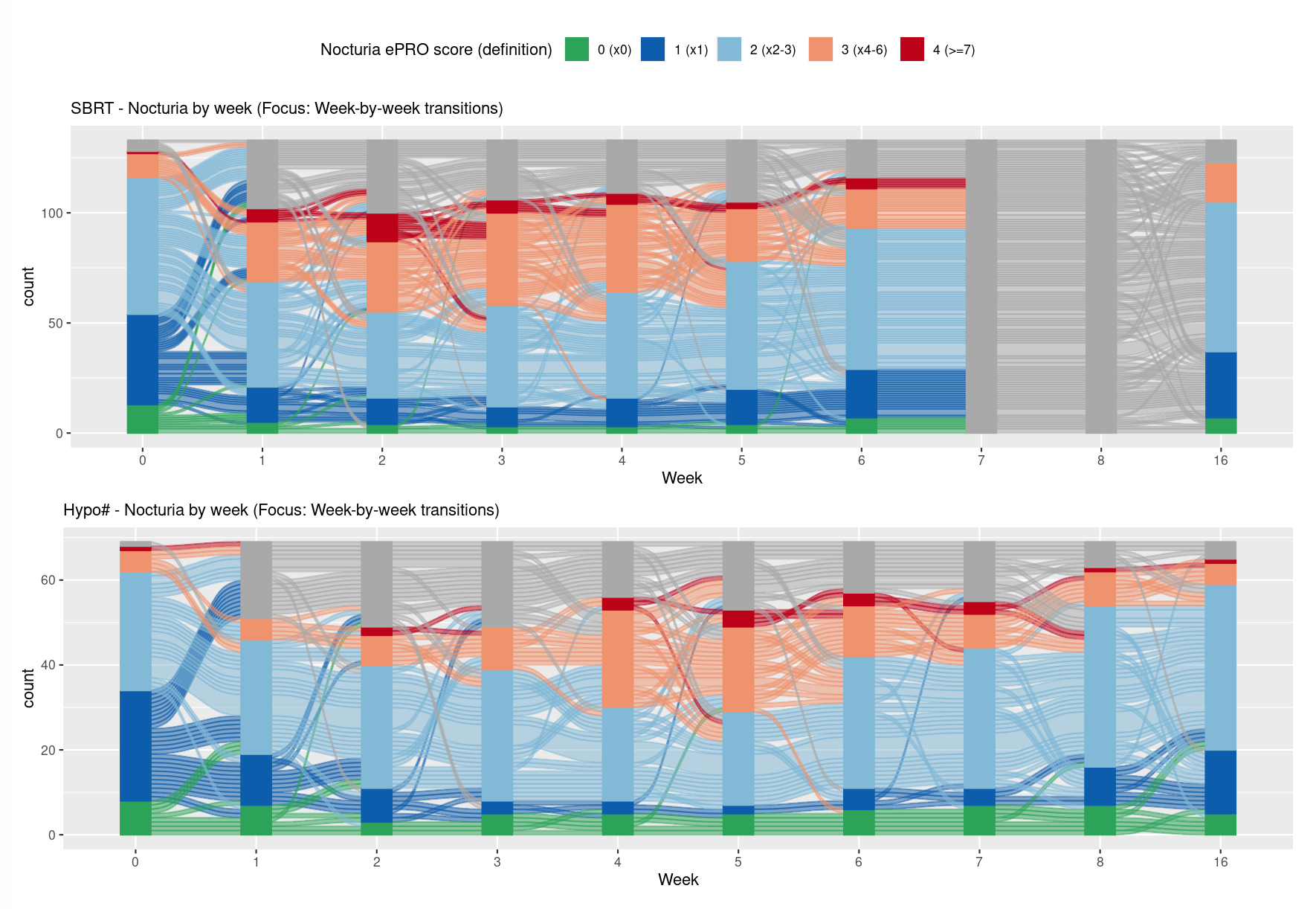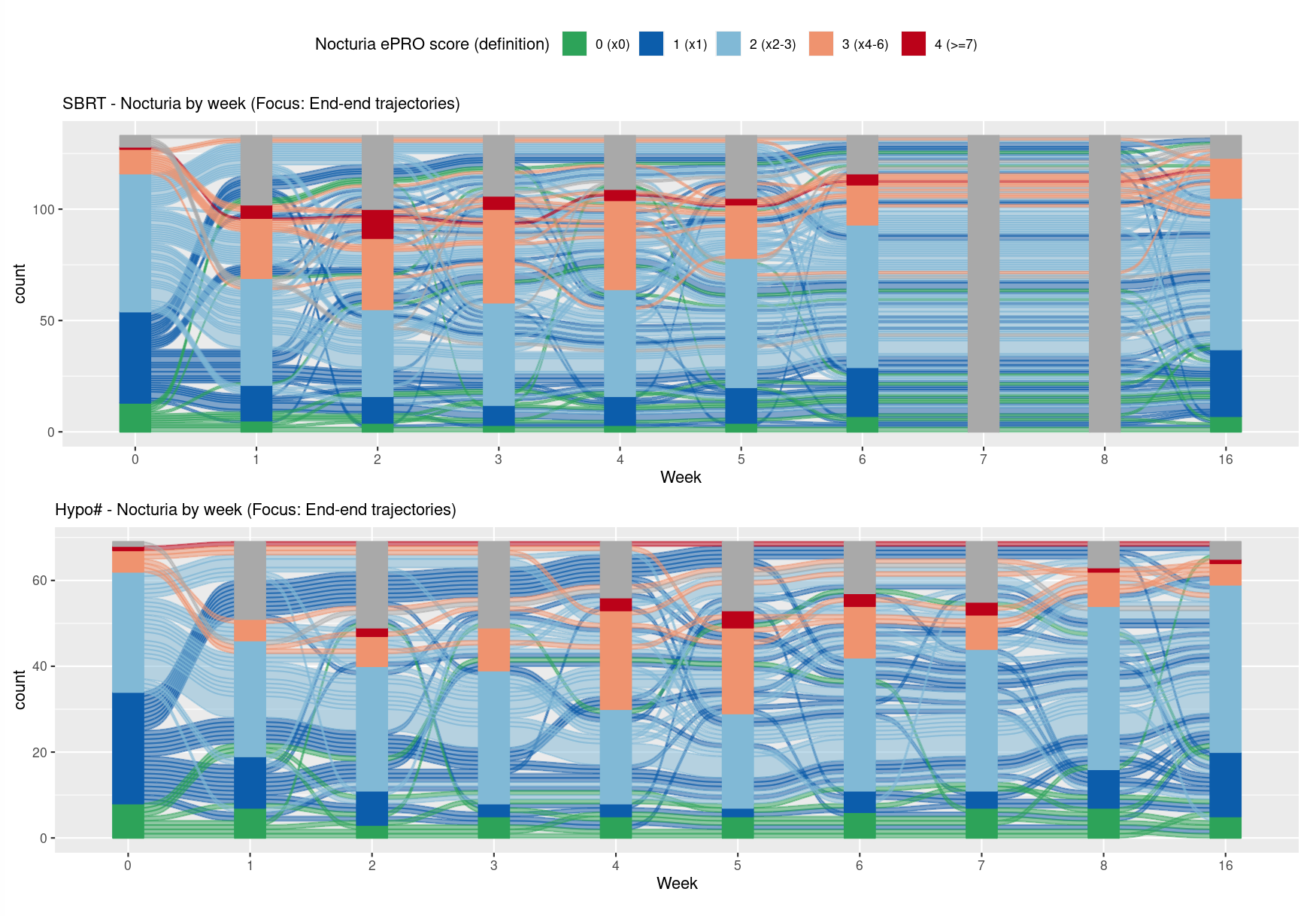Visualising and analysing longitudinal ePRO data

In this project we are exploring longitudinal ePRO analysis methods and visualisation techniques that can capture toxicity-over-time (ToxT) and provide meaningful benefit to routine care treatment decisions, clinical research and shared decision making with our patients.
At FROGG 2022 meeting we presented acute toxicity data from a real-world RCT (poster). These data were captured by weekly ePROs based on REQUITE using a pragmatic screening design. Automated ePRO invitations were sent by email or SMS including 1 reminder. Clinical trial staff did not actively “chase” patients regarding completion.
We are building on the work of below leaders and others to bring routine and longitudinal ePRO collection into Radiation Oncology. ePROs and ToxT monitoring provide novel opportunities to improve care in Radiation Oncology.
Ethan Basch’s ongoing landmark work has establisehd electronic patient-reported outcomes (ePROs) in oncology. His focus is Medical Oncology, which is also evident in the PRO-CTCAE system.
Amylou Dueck and her team at Mayo are pioneeing new ePRO analysis methods such as composite scoring for PRO-CTCAE and baseline adjustment.
Gita Thanarajasingam is highlighting the importance of capturing toxicity-over-time (ToxT) as more and more oncological conditions become a “chronic disease”. Her focus is Haematology.
An example of newer forms of visualising longitudinal toxicity data are alluvial (aka Sankey) diagrams. Here are two sets of alluvial diagrams based on the above mentioned trial. The focus is week-by-week transitions and end-to-end trajectories of nocturia scores respectively:

